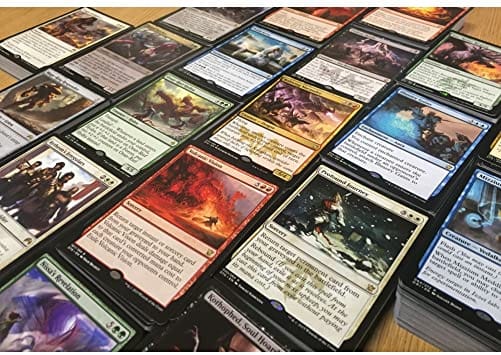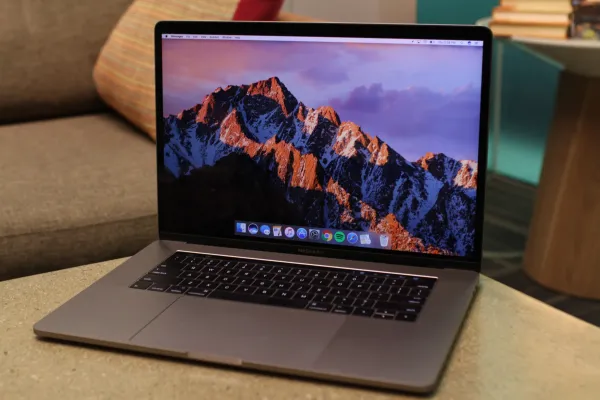Mental Magic: A Fun, Inexpensive Way to Play "Magic: The Gathering"

Know how to play Magic: The Gathering? Want to play it but don’t have the money? Just looking for something different? Something a bit more skill intensive?
Forget Pauper. Forget proxying decks. Let’s play Mental Magic. Mental Magic is a fun and cheap way that, in my opinion, is even more skill intensive than regular Magic.
Have a stack of terrible, unplayable Magic cards? The stack of cards with all the rares taken out? Well gather 200+ of them, take out all the land cards, tokens, tips cards, and transform cards. Shuffle them together, and deal out two sixty card decks for each player (leaving about 80+ cards left over). You’re about to play Mental Magic!
…When you draw your hand of seven cards, you’ll notice that they’re all terrible. But here’s the twist:
Rule 1: You can play any card in your hand as any Magic card with an identical mana cost. You can play with the strongest cards in the game! This is “calling” the card.
Cards in your hand, graveyard, exile zone, etc. are as they are printed. If the card in your hand is an Executioner’s Capsule, it remains an Executioner’s Capsule in all those zones. However, you can tap one black mana at any time to play it as a Disfigure, or put in play as a Gravecrawler, etc. The possibilities!
If the card is going to stick around for awhile, we like to tear off a sheet of paper and label the card. After a card is played, it remains what it was called until it is put in the graveyard, where it returns to what it once was. Your Executioner’s Capsule becomes a Gravecrawler and remains a Gravecrawler. But once it is removed and put in the graveyard, it returns to being a boring Executioner’s Capsule, and cannot be returned to play like a real Gravecrawler could.
You are permitted to call a printed Executioner’s Capsule as an Executioner’s Capsule.
Rule 2: There are no land cards in Mental Magic. Instead, on your turn, once per turn, you may play any card face down as a land called “Pangea”. Pangea is a basic land that can tap for any of the five colors in Magic. Pangea has only one basic land type (Pangea). Pangea is not a Mountain, Swamp, etc., but is a basic land and does tap for red or black. Cards that refer to the number of basic lands (e.g., Tribal Flames) will report a value of one (Pangea). Cards like Kird Ape will never activate.
Rule 3: Each player can only play / “call” the same card once per game. So even though you returned the Capsule, you can’t play it as a Gravecrawler again. Think of something else! Your opponent can still play a Gravecrawler though if they haven’t yet.
Note that this includes when you somehow manage to play a card as printed (e.g., flashback from the graveyard) – you may only do this if you have not played that card before (e.g., called it before, flashed it back before, etc.) You cannot flashback a card if you have already called it (and you may only flashback a card as it is printed).
Rule 4: Cards that are not legal in the Legacy format are banned. Additionally, the following cards are also banned: Hallowed Ground, Trade Routes, and Exploration.
Rule 5: If you miscall a card, discard it and lose two life. Let’s say you have your Capsule and misremember Bloodghast and think it only costs B. You call your Capsule as a Bloodghast and attempt to put in play, but your opponent can stop you and make you discard the card and lose two life. The same thing happens if you misremember and try to call a card that is banned.
Note that this is not an opportunity for trickery – If you call a card wrong and your opponent does not notice, but notices later, you do your best to resolve the game state like you would if you had broken any other rule of Magic (e.g., misremembered a mandatory trigger).
Rule 6: Calling the card correctly is based solely on the name and mana cost of the card. If you call a card that matches the mana cost exactly (including all colors and symbols – not converted mana cost), then you may play it. You are not required to know anything about the rules text of the card (though it helps to know what you’re playing).
The skill of Mental Magic comes from knowing more Magic cards than your opponent and thinking about how to get out of a tough spot! The fun frustration comes from knowing the perfect card by rules text, but not being able to remember the darned name!
Rule 7: Any player is allowed to look up the rules text of any card that is being played, though a player may not look up other cards to inform what to call. This helps with Rule 5 when you play something, but don’t know its precise rules text. Generally, research should be done on one computer in common view of all players.
Rule 8: Cards not in your hand are as printed. If you cascade into a card or reveal the top card of your library, it is the card as printed and you can’t “call” it to be something else. You’re stuck with what you get. Same with Chandra Pyromaster’s +0 ability and other things that don’t involve putting a card from your hand into play.
Rule 9: Normal rules apply for cards as printed. For example, you could play a Akraskan Squire as an Argivian End to return the Executoner’s Capsule back to your hand, because it is an artifact. If the card as printed has flashback, you may flash it back from the graveyard as that card. Etc.
Rule 10: You *can* search through your library, but only for the cards as printed. For example, you can play a Llanowar Elves as a Worldy Tutor to find a Kurgadon to draw next turn and play as Thragtusk. Likewise, a Stoneforge Mystic can only tutor for a equipment printed among the cards in your stack. For example, a Stoneforge Mystic cannot get an Obelisk of Esper out of your stack as a Sword of Fire and Ice.
Rule 11: After the first game, you shuffle your 60 card deck and switch it with your opponent for game 2. Matches are best out of three. This helps balance out the luck and makes things fair. The remaining 80+ cards of your stack are for future matches to enhance replay value.
Rule 12: All other rules of Magic: The Gathering apply. This should be obvious, but it needs to be overtly stated.
Disclaimer
This isn't my idea and there are other rulesets out there. However, this rule set is different in several distinct ways - after playing many games, we like these rules a lot better.
For more advanced play, create a custom stack of a balanced spread of interesting mana costs or consider drafting mana costs from a Cube. (If you draft from a Cube, ignore Rule 11.)



